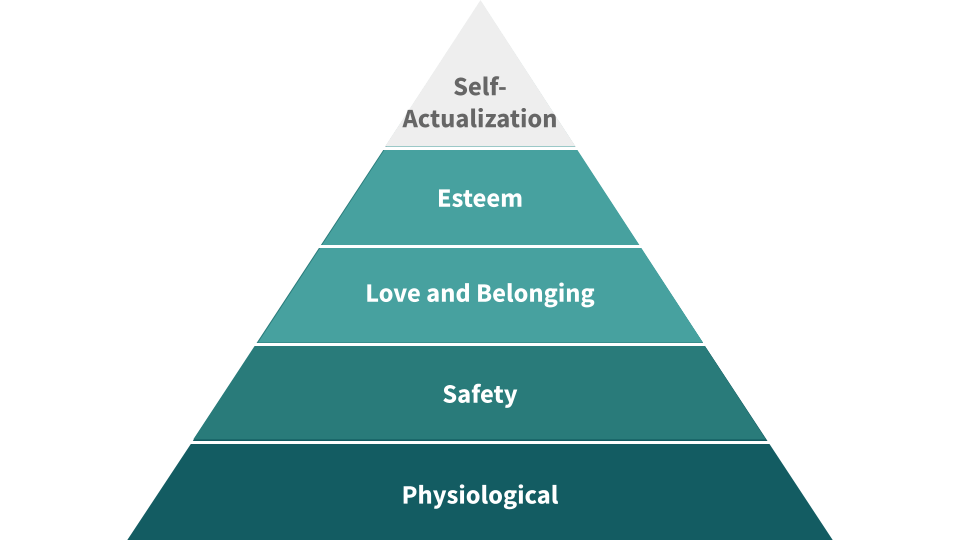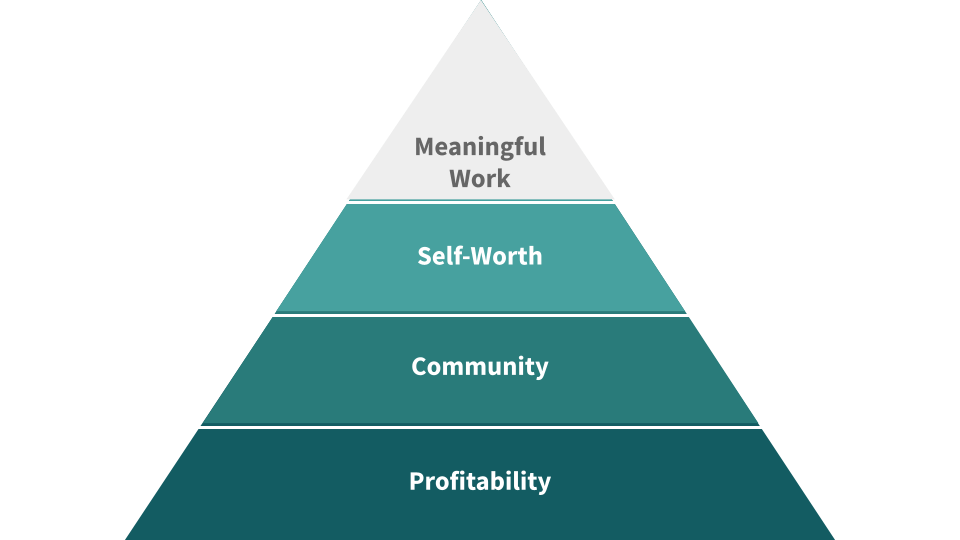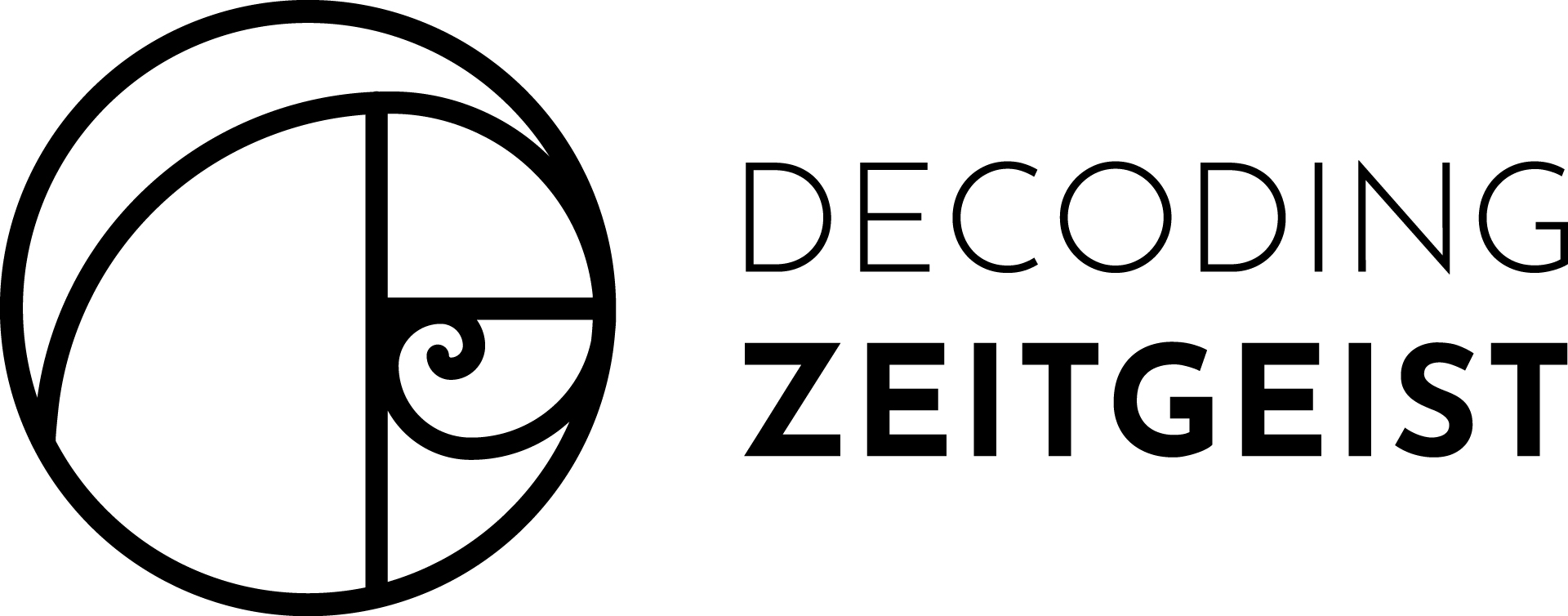Internet gurus bombard us with the notion that hustling and grinding are the cornerstones of digital entrepreneurship — and I sure did when I started out.
When I began working as a freelancer in 2017, I was a full fledged member of the ‘hustle’ doctrine.
But after 5 years of building an agency business to mid-six figure in revenue and seven people, I learned something worth repeating here:
Busy is not cool. Or even the most profitable.
The gurus (in their never-ending efforts to sell courses and books) did not tell us what busy really means: The sleepless nights, the fears when not being able to pay the team, the pressure to sell clients when it would be better to let them go, the multitasking, the endless Zoom calls, the bills, the anxiety, the guilt, the shame and the struggle.
In short: It is “crazy at work”.
While I was toiling away building my agency, a tiny kernel of an idea always hung around in the back of my mind:
There was a different way.
The way we are starting our businesses might not be working — at least not for my sanity, nervous system and soul.
When I read It Doesn’t Have to Be Crazy at Work by Jason Fried and David Heinemeier Hansson — it was like I finally came home and finally felt seen in how I felt about business.
They talked about a calm company.
The term “calm company” makes me relax, it is a long deep out-breath. And a huge relief of the pressure of the grind and hustle culture.
An important disclaimer: Being a calm company does not mean you’re not ambitious. Some of the founders of calm companies that I know are very successful and their companies grow rapidly. They are just not willing to compromise personal well-being and psychological safety in the process.
I built my agency Flow SEO (a business model notorious for crazy times and busyness) based on the vision of flow and a calm company. In this article, I will explain in detail what I mean when I say it doesn’t have to be crazy at work — and how you can start thinking about your business as a calm company.
Building A Calm Company
Psychologist Abraham Maslow (1908–1970) defined five levels of psychological needs and motivations of humans.

It starts with physiological needs at the bottom. These are our needs for food, water, sleep and shelter.
Next comes physical safety but also health, employment and social stability. What follows is our need for love and belonging. These are our friendships, family and other relationships. As humans, we are deeply social creatures, and we thrive on our sense of connection.
The next two layers are related to our achievements and fulfillment of our potential. The need for esteem relates to our confidence, achievements and the respect in our community.
The very top of the so-called pyramid is self-actualization. This is our creativity, morality and self-expression.
The hierarchy of needs tells us that we need to start fulfilling these needs from the bottom up. Our need for survival comes first. And as those needs are starting to be met, we expand into new realms of possibility.
Now, this is where a calm company comes in. The top four layers of the pyramid (everything except for physiological needs) make the foundation for a calm company and self-fulfillment at work.
The Four Levels of a Calm Company.
These four levels have one goal: To relax your nervous system and allow you to live and work in the zone.
The levels work similarly to the hierarchy of psychological needs. They usually build on each other and amplify each other.
Profitability and a stable cash flow: As business owners, we cannot thrive if we are constantly worried about the bills and how to meet them. A calm company is first and foremost profitable. And ideally, profitable from Day 1. A stable cash flow and company savings allow you to relax and make the investments necessary to grow.
Community, team and clients: Business is a team sport. I want you to ask yourself: When it comes to your co-founders, team members and clients — how do you feel after a meeting, email or call? It is always easy to be nice when things are running smoothly. But, with whom do you still feel safe and respected — even if challenges arise? Focus on the relationships that are net-positive.
Self-worth: How does your business make you feel about yourself? Do you feel strong, confident and as if you are generally doing a good job? If you constantly feel scared, guilty or ashamed — something is off. If you are like me and you have a tendency for self-hate and shame, ask yourself: What situations, projects, products and clients when am I not aligned with my values, and when are my boundaries being violated?
Meaningful work: Do you get to play at work? Do you experience deep flow states when working where you are just in the zone and everything lines up perfectly? Do new projects and clients seem to arrive just at the perfect time? This is a sign that you are probably working in your zone of genius and focusing on the things that light you up — and hence propel your business forward.

Practical Insights on Building a Calm Agency
One of our consultants took every Friday off in winter 2021 to go skiing, whilst at the same time achieving outstanding results for our clients.
This is what building a calm company is really about!
The following sections will dive into exactly how to convert your company into a calm one.
Managing Distractions: Notifications, Chats And Meetings.
According to Gallup, the longest most people work on a single task before getting interrupted or switching is three minutes. Let that sink in: Three minutes is the longest focus time for most people!
Our flow and productivity are crushed by interruptions, emails and notifications.
I can attribute a huge amount of the success Flow SEO has experienced to our religious commitment to optimizing flow-state productivity. Flow is that feeling of being in the zone and technically defined as the state where “we feel our best and perform our best.”
How to Protect Your Company Flow
Creating the space for flow has always been a priority for me. Being a completely remote company, we rely on digital communication tools but we treat them with great care.
We have built a habit of asynchronous communication. This means everyone replies during their working hours. This especially means that we are not forced to reply to messages that arrive at 10 p.m. or on a Saturday.
- We use the chat app Slack for questions, comments and notes. We post when things are top of mind and expect other people to respond within the next 12 to 24 hours.
- We use Asana for all tasks, this way nothing gets lost (Slack is a bit notorious for losing files and tasks).
- We store all documents in a shared Google Drive that everyone has access to.
- We communicate with clients mainly via email and respond within 24 hours during the workweek.
The founder of Gumroad runs a company with no internal meetings at all. This sure leaves a lot of space for focus time and flow — but the idea of no meetings is too extreme for me. I have worked in companies where the boss was hard to reach, and it blocks progress more often than it helps.
At Flow SEO, we have reduced meetings to a minimum, whilst trying to stay in touch enough to solve issues effectively.
- Everyone has one core function or 1-on-1 meeting every second week. This is usually about 45 min to 60 min.
- Each client usually has one 30-min call every second week.
Both meetings are on a set schedule and pre-booked for months in advance. I cannot remember a single last-minute emergency team meeting in the last 2.5 years.
Prospects and additional client calls are scheduled via my Calendly calendar that has openings only on Tuesday and Thursday afternoon.
Your Colleagues Are Not Your Family — Go Home.
Remember the time that you joined a new company and they greeted you with “Welcome to the family?” I sure have. And I also have seen these families come and go as we change jobs and progress.
Of course, some clients and team members have turned into friends but generally speaking, Flow SEO is not your family. We respect and care for each other, but we want you to go home. Play with your cats, go hiking or skiing, and spend some time with your loved ones.
There is a life outside of the office, and we want you to embrace it!
The Holy Grail — Taking Prolonged Vacation
I don’t know about you… but the last time I took 10 days off (no internet, no emails, no tasks) was during Burning Man 2019.
During my last skiing holiday, my sister’s friends — who are all employed — pitied me for taking calls and answering emails. I thought, “Hey, this is an amazing work week with a low workload and lots of skiing.” They thought, “Wow, she has to work on vacation.”
And maybe I was the one fooling myself because I was working on vacation.
Taking time off has been one of the hardest things because I love what I do, and I am generally inspired by marketing and agency work. I listen to business podcasts at night and usually read a marketing book. I dream about new initiatives and ideas — even in my free time.
And it seems my American and Eastern European colleagues have the same issues. I know that Germans take the most time off (25 to 30 days of holidays per year is not uncommon when employed), but I am having the hardest time when it comes to team members taking time off. Even though I am literally paying them a bonus to go on holiday.
If you have any ideas on how to get your colleagues to take time off, hit the contact button in the top navigation bar and let me know!
Saying No Is The Protector Of The Calm Company
There are two incredibly hard things when running a business — taking time off and saying no. And they seem to be related.
It is hard for my SEO consultants to say no to me if they already have enough work on their plate or the client project does not match their skill set. It is hard for the backlink team to say no when I ask for a higher backlink count. And it is hard for me to say no when the client wants more backlinks — or add a project that is really out of scope.
Saying no — for me — is embarrassing and makes me feel inadequate. Learning to say no has been the hardest part of building a calm company. However, saying no is the protector of the calm company.
I said no to Facebook ads, CRO and social media content when I named the agency Flow SEO on purpose. And I still say no to content writing and web development today.
Saying no allows for something beautiful: Integrity.
If you say no to the things that you do not want to do, it means people can trust you. It means you are doing the hardest thing in business: You give your word and you actually execute on it.
My excitement during meetings and my insecurities are the main factors for saying yes to projects that I don’t really want to say yes to.
The question is, how do you know when to say no?
- It is really out of scope and we are delivering tons of extra work for free.
- I am messing with our system and procedures, making it harder for Flow SEO to execute on things.
- I am getting a weird vibe from the person of contact but the budget size sounds good.
- The website is too small for SEO, and I should really only offer a project and not a monthly retainer, even though they are the ones pushing for it.
- I get into a business idea, mastermind or project prematurely without rationally thinking about it because I am so excited on the call.
- I say “we will have this done by tomorrow” without considering the tasks that I actually had scheduled for today.
It is a constant process of catching myself saying yes when I didn’t want to (sometimes too late and then I have to apologize) or working with standard answers (“We will send this to you by early next week.”).
My coach has hammered this into my brain the last three years: What do I want?
And sometimes the excitement of a new idea, a big budget or a great brand name would compromise the core value of our agency — building a calm company.
Saying no has been one of the best skills for me to learn. And saying yes to those activities that have traction, show good results, make me feel successful and allow me to work with people I love.
Summary: A Calm Company and Ambition
As my agency has grown in the last 2.5 years I have started to become more conscious about how my decisions affect my lifestyle and the lifestyle of everyone working for Flow SEO.
Building a calm company is becoming increasingly important for me. I measure success in becoming a calm company by these parameters:
- Client retention rate in months (our agency North Star): It shows me that our services are meaningful.
- Profitability: Is the main indicator that our agency is economically viable and an income source that we can trust and build our lives upon.
- Happiness of team: Every two weeks, we discuss every client and project and rate them on a scale from unhappy to medium happy to happy. I want to make sure that most weeks, my team can hit “happy” for all clients and projects.
- My nervous system: A calm company is the absence of anxiety and panic attacks.
- My self-worth: A calm agency is me closing the laptop at the end of the day knowing that I got to work on tasks that are important and meaningful. It is me feeling good about myself.
These factors might sound familiar. They are largely the four levels of becoming a calm company that I have outlined in the beginning of this article.
Does building a calm company mean that I am not ambitious or successful? Not at all!
Flow SEO is well on its way to becoming a seven-figure business, and I am well on my way to becoming a great CMO. I have many ambitious ideas for services and products that I want to create in the future.
The beauty of a calm agency is that I have the headspace, time and financial resources to keep on growing, investing and building.
